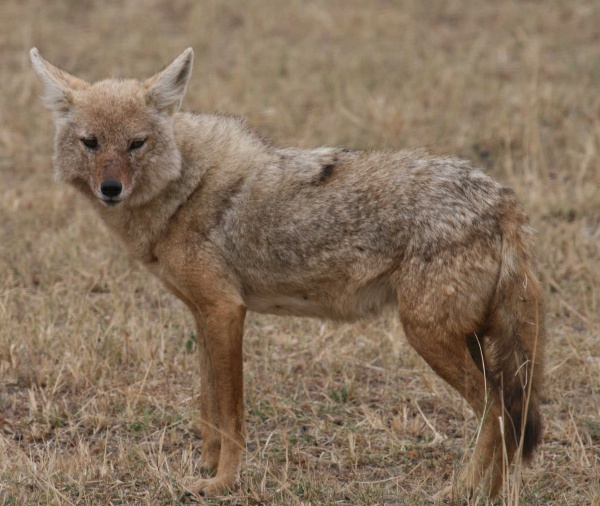Facts About African golden wolf
The African golden wolf is a captivating canid species native to North Africa and the Horn of Africa. Boasting a unique genetic makeup that includes both gray wolf and Ethiopian wolf ancestry, this species has established a niche in countries such as Senegal, Nigeria, Chad, Morocco, Algeria, Tunisia, Libya, Kenya, Egypt, and Tanzania. Classified as Least Concern on the IUCN Red List, the species is currently not at risk of extinction.
These wolves exhibit a varied diet, preying on invertebrates, small mammals, carrion, human refuse, and even fruit. They are monogamous and highly territorial, with offspring frequently remaining to assist in raising subsequent litters of pups.
Historically, the African golden wolf was misclassified as a regional variant of the golden jackal. However, genetic studies conducted in 2015 revealed it to be a distinct species, more closely related to the gray wolf and coyote than to the golden jackal. This discovery has reshaped our understanding of this animal's position within the canid family tree.
The African golden wolf holds various cultural significances across Africa. Physically, it occupies an intermediate size range between African jackals and the smaller subspecies of the gray wolf. It is characterized by a long snout, large ears, and fur that displays considerable color variation.
Taxonomically, there has been ongoing debate regarding the classification of this species. Earlier writings proposed various names and classifications, but recent genetic research has elucidated its evolutionary history and relationships with other canids, including its genetic interplay with gray wolves and Ethiopian wolves.
Behaviorally, the African golden wolf exhibits considerable diversity. It maintains complex social structures, employs varied communication methods, partakes in unique courtship rituals, and utilizes specific hunting techniques. Notably, they are known for their robust territorial defense mechanisms.
Ecologically, these wolves are highly adaptable, thriving in diverse habitats across their range. Their flexible diet allows them to hunt small prey, scavenge, and forage for insects. They also interact with other predators and competitors, such as black-backed jackals, hyenas, and Ethiopian wolves.
Culturally, the African golden wolf is significant in literature, art, and folklore. It has been depicted as ancient Egyptian deities, referenced in Moroccan folk medicine, and revered in the creation myths of the Serer religion.

 Burkina Faso
Burkina Faso